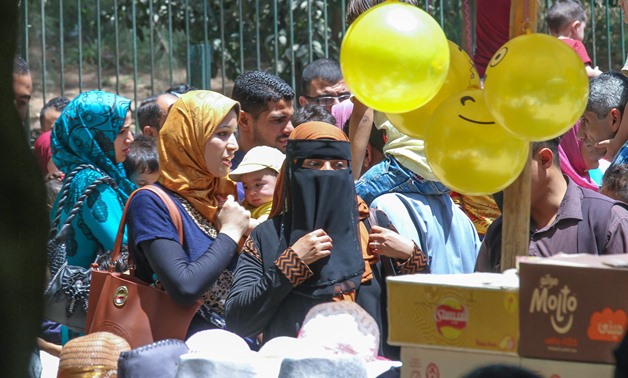
Egyptian visits Giza Zoo on the second day of Eid al-Fitr- Egypt Today/Khaled Kamel
CAIRO – 6 June 2019: The National Council for Women's operations room said it has not received any harassment complaint so far, during the celebrations of Muslim's Eid al-Fitr, literally translated as "the feast of breaking the fast."
The NCW receives complaint via hotline no. 15115 or through the phone numbers: 01099299191 – 01007525600 – 01554845024.
Head of the NCW Maya Morsy said that the room works to provide social and legal support to women and girls in case they decide to file lawsuits, stressing the council's cooperation with the Ministry of Interior's Anti-violence against women unit.
As for streets and around cinemas, female police personnel have been reportedly deployed intensively, mainly to secure girls, and protect them against harassment.
Legal issue
Two main legislative documents protect, support and empower women in Egypt: The Egyptian constitution of 2014 and the Criminal Code of 1937 and its amendments.
These legislative pieces divide crimes against women in Egypt to two separate groups: Misdemeanors and felonies. Misdemeanors, such as catcalling or sexual harassment, are seen as less significant crimes than felonies, and are usually punished by fines and short-term jail time; the trails are also shortened. Felonies, like FGM, rape, kidnapping a female, or sexual assault, are punished by longer jail time, and a permanent record is placed for those convicted.
According to the Criminal Chamber of the Court of Cassation in Ruling No. 289 of April 24, 1950, there is no need to prove that the offender had complete sexual intercourse with the victim against the victim’s will. It is sufficient for the offender to touch the victim with their hands, reproductive organs, or device against the victim’s will. To ensure justice, Ruling No. 4794 of February 14, 1985, was amended to add that the assailant must have had mental intent, meaning that it was not accidental. Law No. 11 of 2011 was later added to increase the penalty against attackers of children under the age of 18, under article 269 of the Criminal Code, to three to fifteen years in prison.
Additional reporting by Lolwa Reda

Comments
Leave a Comment